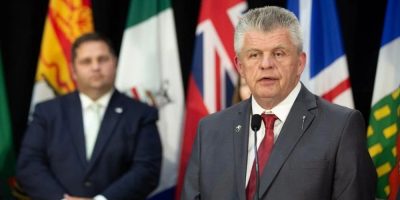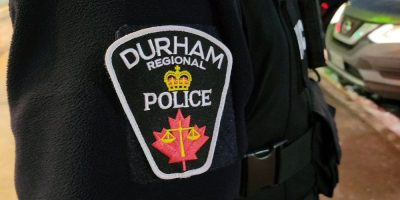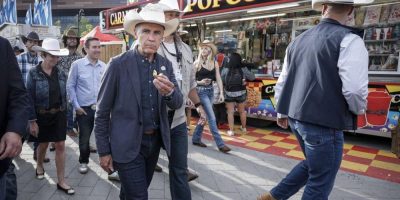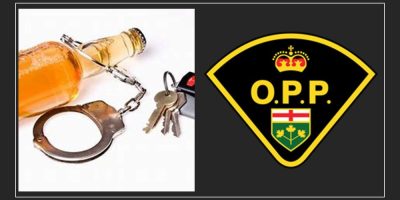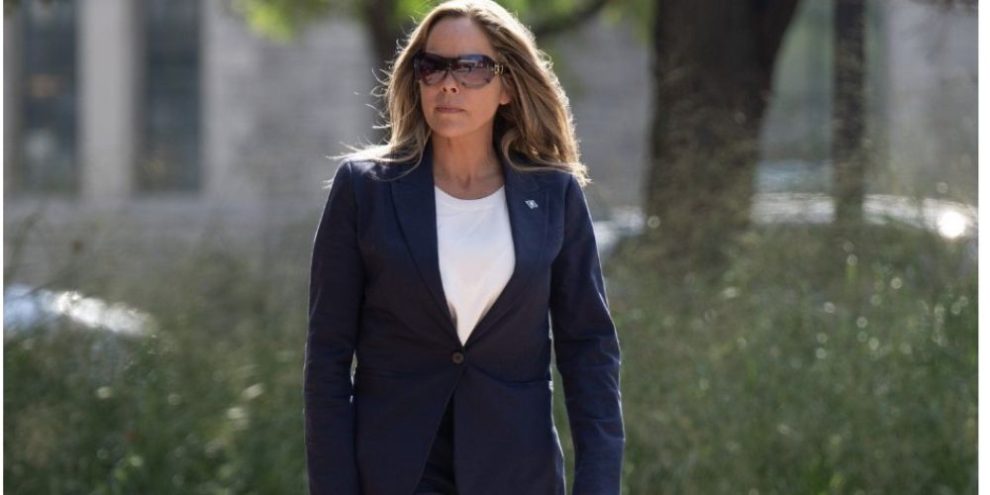
By Laura Osman in Ottawa
The longer "Freedom Convoy" demonstrators blockaded Ottawa streets in protest of COVID-19 public health restrictions last year, the more volatile the relationship between police and protesters became, an Ottawa police officer testified Wednesday.
Insp. Russell Lucas was called as a Crown witness in the criminal trial of key protest organizers Tamara Lich and Chris Barber to testify about his role in co-ordinating the police response to the convoy.
Lich and Barber are co-accused of mischief, counselling others to commit mischief, obstructing police and intimidation for their role in the three-week demonstration.
Barber faces an additional charge of counselling others to disobey a court order.
Thousands of people and big-rig trucks gridlocked Ottawa for three weeks to protest COVID-19 public health measures and the federal Liberal government, which eventually invoked the Emergencies Act.
Lucas, who served as an incident commander during the protest, told the court that participants were initially co-operative as police attempted to direct traffic when the vehicles began arriving.
But as the days passed, he said, police were more likely to be swarmed by the demonstrators when trying to enforce the law.
Lucas recalled one example when police responded to protesters setting off fireworks near the National War Memorial. Lucas said he watched the situation unfold on traffic cameras and listened over the radio, and felt he had to send in more officers to ensure the safety of those already there.
Lucas told the court the Ottawa police had initially put a plan together that would accommodate roughly 2,000 vehicles on Wellington Street in front of Parliament and along several parkways.
Instead, more than 5,000 trucks arrived on the first weekend of the protest in late January, Lucas told the court. “Obviously, the event exceeded our expectations."
Roughly two-thirds of protesters left after the first weekend, he said, but the problem for police was that the footprint of the protest remained the same.
Big-rig trucks blocked Wellington Street and spilled onto other streets around downtown, including residential roads.
At that time, police resources were stretched very thin, Lucas said.
Teams of officers had tried to negotiate with protesters to clear traffic lanes and shrink the footprint by moving trucks toward Parliament Hill, "but that never happened," he said.
He said instructions came down from senior command "not to give the protesters an inch," which made the task of negotiating much harder for officers on the ground.
"Because they didn’t have any negotiating power," Justice Heather Perkins-McVey concluded during Lucas' testimony.
Lucas offered similar testimony to a federal inquiry into the Liberal government's use of the Emergencies Act during the protest.
He told the Public Order Emergency Commission that even after what happened during the protest, he still would have permitted vehicles to park on Wellington Street in front of Parliament if he could do it again.
Lich's lawyer Lawrence Greenspon said to Lucas during the criminal trial Wednesday: "My understanding is this plan to have the truckers park on Wellington Street was something that you felt, and still do feel, was the best way to mitigate the impact on the core of the city."
Lucas agreed. Earlier in his testimony, he said his ultimate goal was to uphold protesters' Charter rights while easing disruptions to local residents and businesses.
In his cross-examination, Greenspon also alluded to Lich's attempts to work with the city to move trucks from residential neighbourhoods onto the street in front of Parliament Hill.
Correspondence between Lich and former Ottawa mayor Jim Watson outlining that plan has not yet been submitted as evidence in the trial.
The Crown's case rests on its assertion that Lich and Barber orchestrated the blockades on Ottawa roads in order to put pressure on the government to change its COVID-19 policies, and that they encouraged their supporters to remain in the city after police ordered them to clear the streets.
Banner image: THE CANADIAN PRESS/Adrian Wyld
This report by The Canadian Press was first published Sept. 6, 2023.

